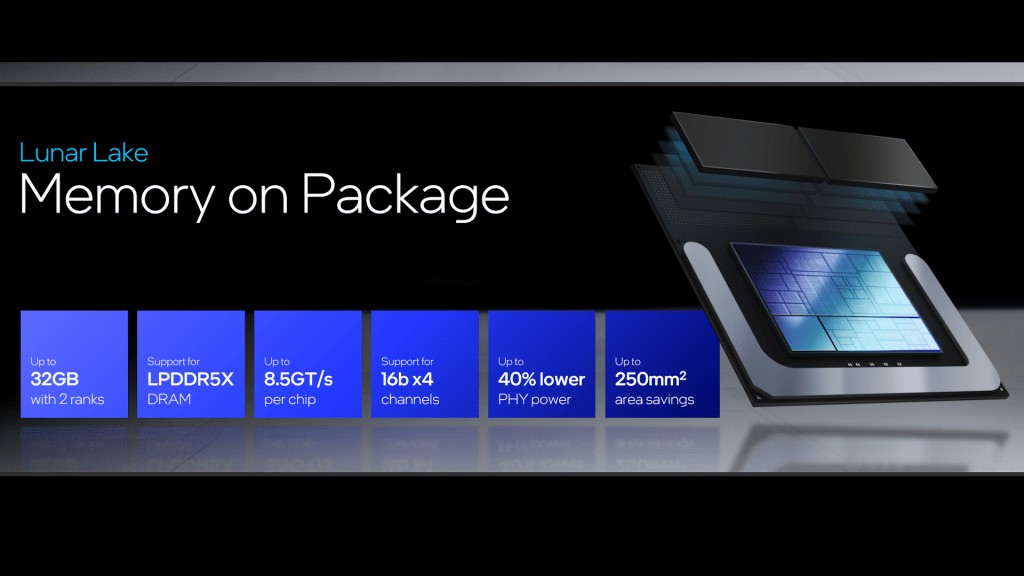
In a surprising turn of events, Intel has announced plans to abandon its integrated RAM approach for future laptop processors, citing financial challenges and market demands. The tech giant is also reevaluating its position in the desktop GPU market, potentially signaling another exit from this competitive space.
Lunar Lake's Integrated RAM: A Costly Misstep
Intel's Lunar Lake mobile CPUs, which controversially integrated system memory directly onto the chip, have been identified as a contributing factor to the company's recent financial struggles. During Intel's third-quarter 2024 earnings call, CEO Pat Gelsinger confirmed that upcoming architectures, including Panther Lake and Nova Lake, will revert to using traditional RAM sticks.
The Lunar Lake Core Ultra 200V light mobile CPUs, featuring either 16GB or 32GB of built-in memory, were initially touted for their power efficiency. Intel claimed a 40 percent reduction in power consumption during memory transfers. However, this design choice severely limited user upgradability and customization options.
Gelsinger described Lunar Lake as a "one-off project" originally intended for a niche market but expanded in response to the growing AI PC sector. CFO David Zinsner acknowledged that the integrated memory approach significantly impacted Lunar Lake's gross margins, contributing to Intel's financial woes.
Financial Turmoil and Market Pressures
Intel's Q3 2024 financial report revealed a staggering $16.6 billion net loss, dwarfing the previous quarter's $1.6 billion loss. This financial downturn has prompted the company to reevaluate its product strategy and market focus.
Uncertain Future for Intel's Desktop GPUs
As part of its restructuring efforts, Intel is considering streamlining its product lineup, which may include scaling back or discontinuing development of Arc desktop GPUs. Gelsinger hinted at a potential decrease in demand for dedicated graphics cards in the future, casting doubt on Intel's continued presence in this market segment.
Intel's Arc Alchemist GPUs, launched in 2022, struggled to gain traction against competitors Nvidia and AMD. Despite initial gains, Intel's market share in the discrete GPU space had all but disappeared by late 2024.
While the second-generation Arc Battlemage GPUs are still on track for a late 2024 release, their performance and market reception may determine the fate of Intel's planned third-generation Arc Celestial lineup.
As Intel navigates these challenging waters, the tech industry watches closely to see how the company will adapt its strategies in the rapidly evolving PC and GPU markets.